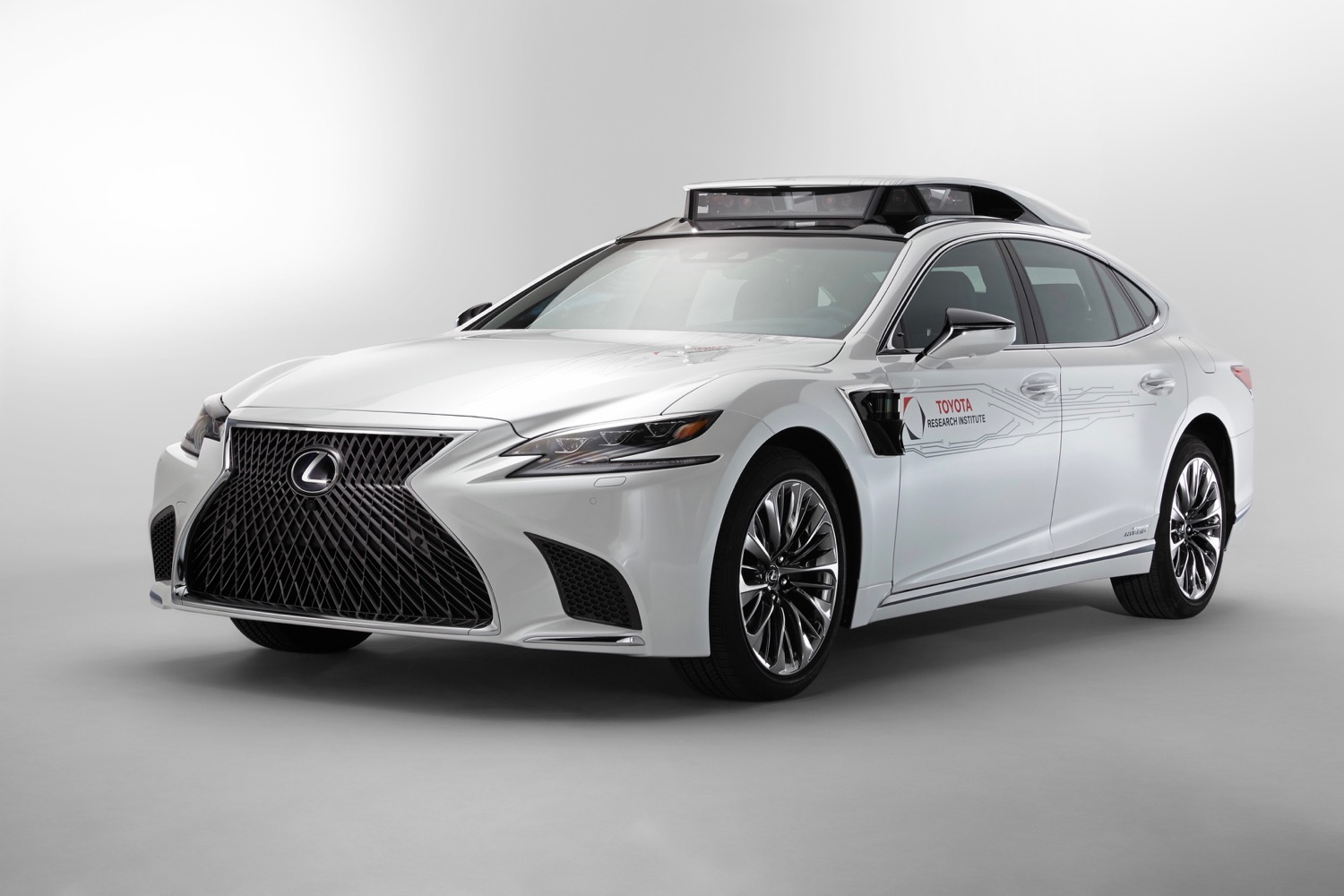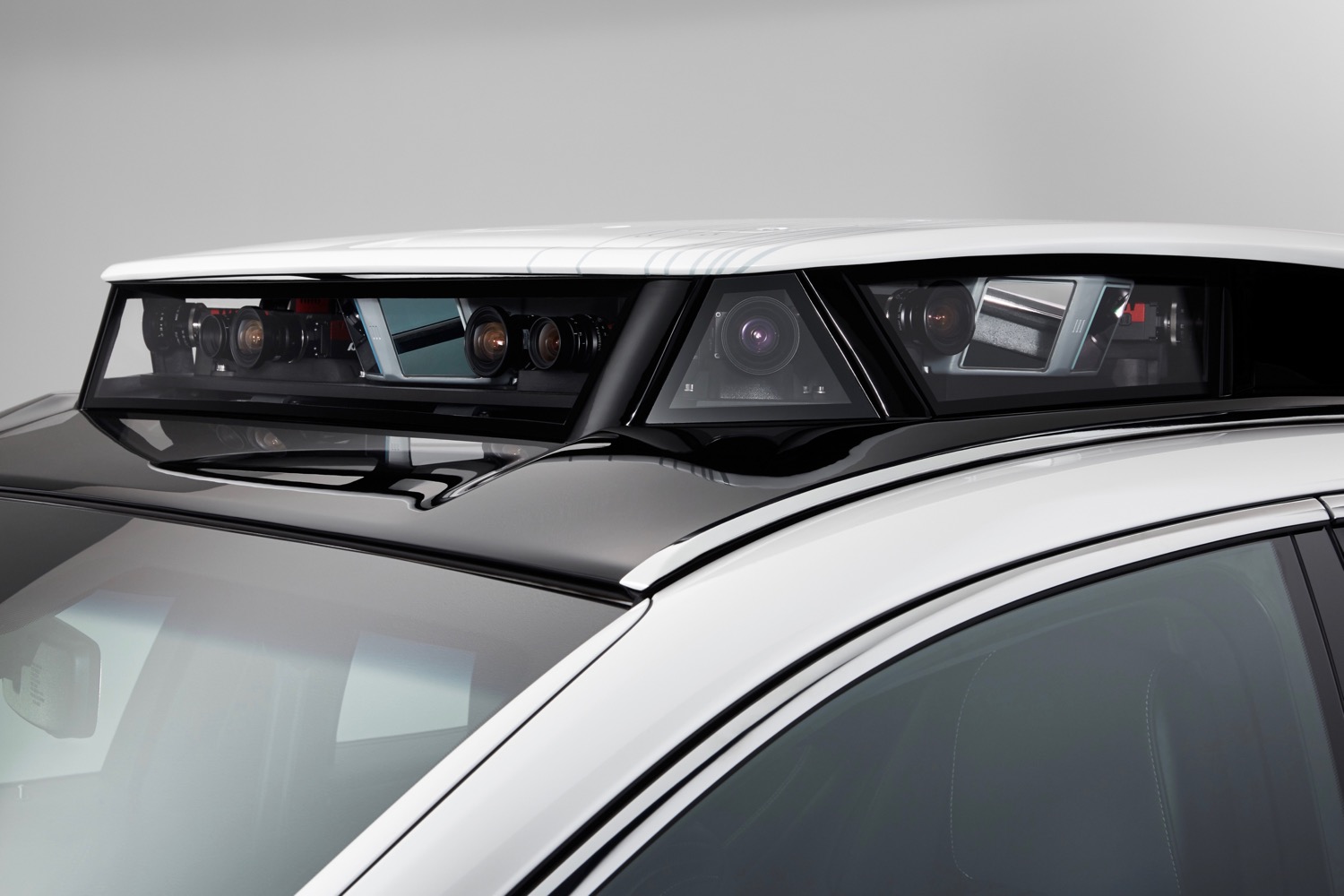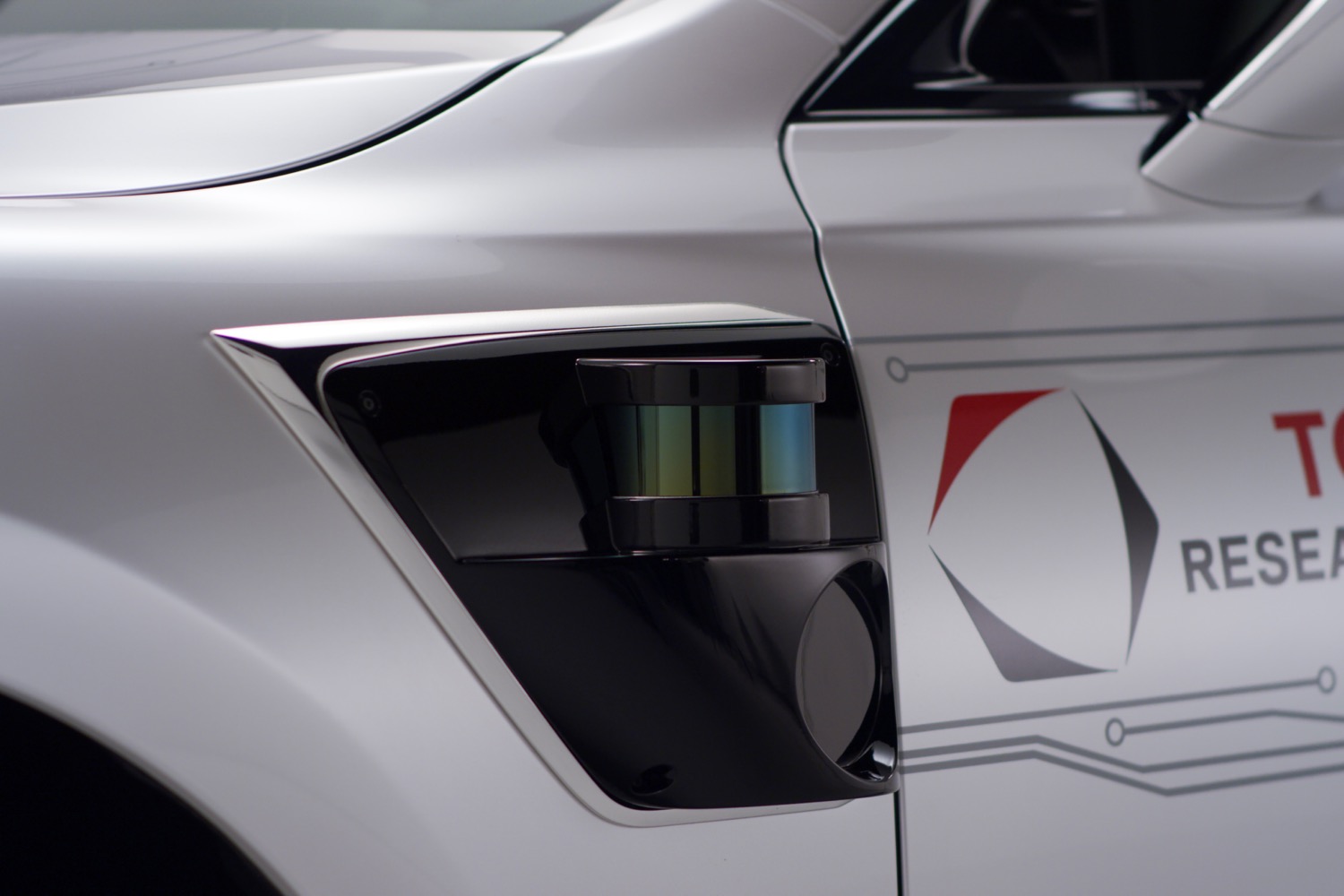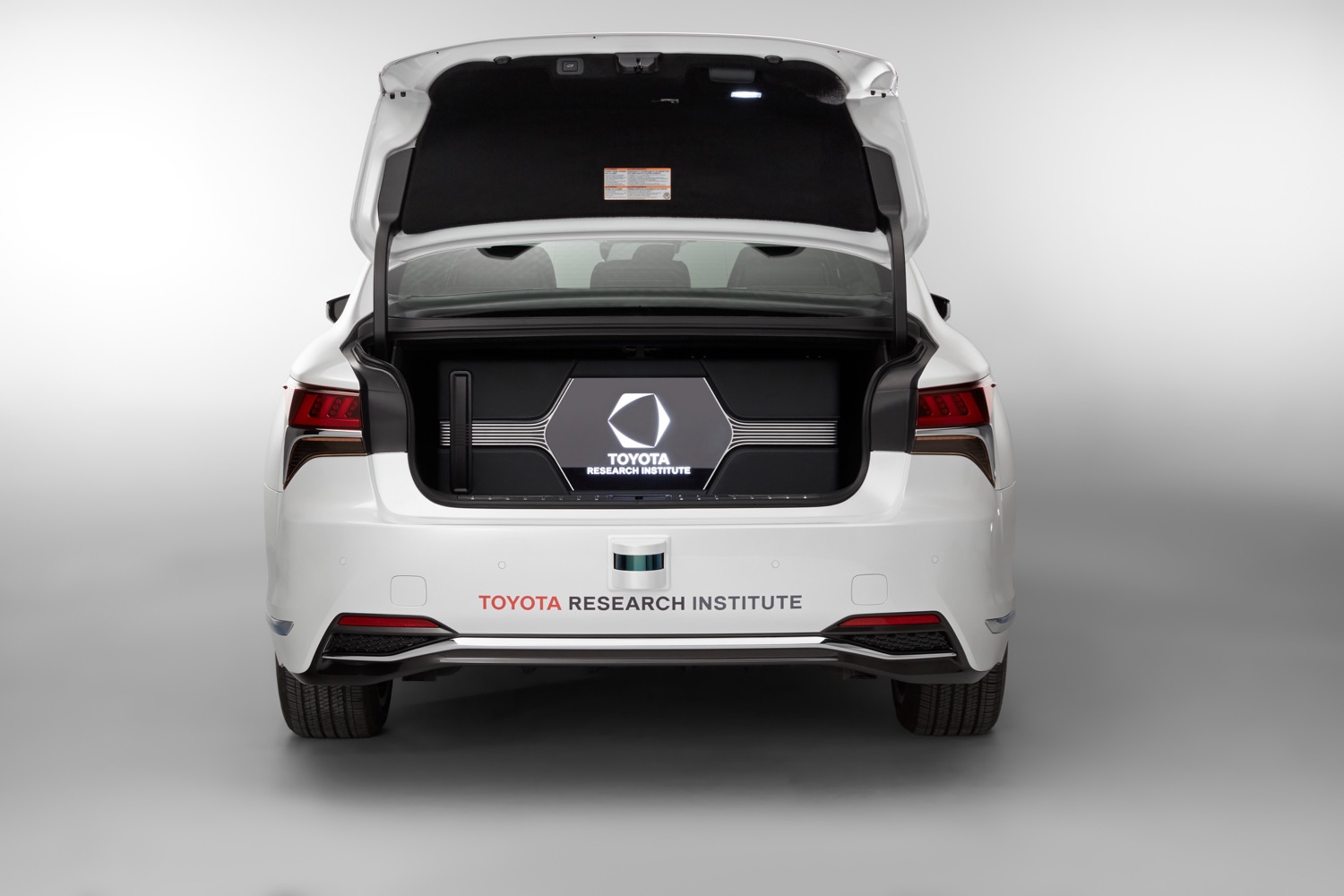Toyota will bring its latest prototype self-driving car to CES 2019. Code-named Platform 4.0 (or P4 for short), the car continues Toyota’s two-pronged approach to autonomous-driving tech, with systems designed to drive without human intervention, or to assist a human driver.
Like all previous Toyota autonomous prototypes, the P4 is based on the Lexus LS, flagship sedan of the Japanese automaker’s luxury brand. But where previous prototypes were based on older versions of the LS, the P4 is based on the recently introduced fifth-generation model. Engineers chose the LS 500h hybrid version because its onboard battery pack can be used to power the sensors and computers needed for autonomous driving. This is why other automakers and tech companies tend to choose hybrids or electric cars as test platforms for their autonomous-driving tech.
Toyota said the P4 has two additional cameras on the sides of the body, and two new imaging sensors — one facing forward, one facing rearward. The imaging sensors also feature new chip technology, and the onboard radar has been tweaked to allow a better field of view, according to Toyota. The lidar system, which includes eight scanners, carries over from the previous-generation test car.
It may be a prototype, but the P4 was designed to function like a normal car. As with its previous test cars, Toyota tried to integrate the sensors with the P4’s bodywork, rather than just tacking them on. But the hump on the roof and cutouts in the front fenders are dead giveaways. The trunk-mounted computer box (which is more powerful than before, according to Toyota) was also rejiggered to free up space for cargo.
Toyota is developing two autonomous-driving systems: “Chauffeur” and “Guardian.” As the name implies, Chauffeur handles all driving duties, completely removing human drivers from the equation. Guardian allows a human driver to maintain control, only providing assistance when deemed necessary.
The first P4 cars will join Toyota’s test fleet this spring. The Japanese automaker will also partner with Uber on self-driving cars. It will invest $500 million in the ridesharing company, and supply a fleet of Sienna minivans for joint testing. Toyota believes services like Uber will be the main users of autonomous cars, rather than individual owners.






